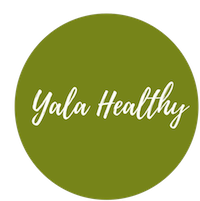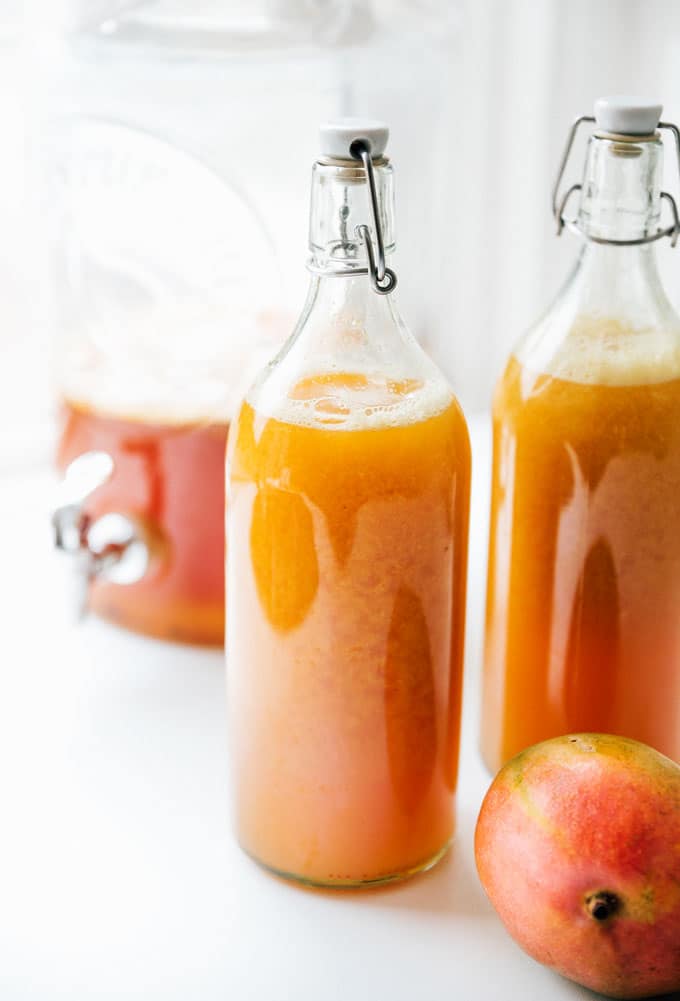Best Kombucha In Qatar
Frequently Asked QuestionsKombucha In Qatar… The Yala Healthy Way…
Yala Healthy has been brewing kombucha in since 2018 and was the first artisan kombucha brewer to make this amazing drink available in Doha.
Kombucha is a fermented tea that has been consumed for thousands of years.
Not only does it have the same health benefits as tea — it’s also rich in beneficial probiotics.
Kombucha also contains antioxidants, can kill harmful bacteria and may help fight several diseases.
I use organic tea and only fresh fruits and herbs to flavor my kombucha. As a nutritionist, and a passionate kombucha drinker, I make sure that each and every batch of kombucha is made with love and health at its core
FAQ
What is kombucha?
Kombucha starts out as a sugary tea, which is then fermented with the help of a scoby. “SCOBY” is actually an acronym for “symbiotic culture of bacteria and yeast.” It’s very close cousins to the mother used to make vinegar.
The scoby bacteria and yeast eat most of the sugar in the tea, transforming the tea into a refreshingly fizzy, slightly sour fermented (non-alcoholic) beverage that is low in calories and sugar.
What are the ingredients in Yala Kombucha?
I use only organic green, black or white tea or a blend of them. Organic coconut sugar (notoriously difficult to brew kombucha with), and water. For flavoring, I use fruit and spices.
Is kombucha high in sugar?
I often get asked about the sugar content in kombucha or whether I have sugar-free kombucha.
It would be easy to simply tell you no, but let me explain.
First of all, compared with many other popular beverages, the sugar content in kombucha is relatively low. Kombucha manufacturers and brewers have their own recipes, so I can’t speak for all of them, but I do know that the sugar content in my kombucha is no more than 3-4 grams or less per 7 fluid ounces. Add to that, I use only organic coconut sugar in my kombucha.
This is where it gets interesting and why no kombucha is sugar-free.
Kombucha is a fermented beverage. In order for fermentation to occur, there must be three elements:
- Tea (made from tea leaves and water)
- Specific yeast and bacteria (called SCOBY)
- Sugar
The sugar feeds the yeast and bacteria, aiding in its growth. Without sugar, you have no yeast and bacteria. Without yeast and bacteria, you have no kombucha.
Most of the sugar added to the tea is consumed during the fermentation process. The byproduct of this is carbon dioxide (that’s where the fizz and tang come from).
If you’re thinking 4-7 grams of sugar is a lot, let me put into perspective.
* Fruit juice: 33 grams to 58 grams per 12 fl oz
* Coca-Cola Classic: 35 grams per can
* Dr. Pepper – 66 grams per 20 fl oz
* Lemonade – ~ 25 grams per 12 fl oz
* Gatorade – ~ 34 grams per 20 fl oz
* Starbucks Frappuccino – 66 grams per 16 fl oz
* Cappuccino – 12 grams per 16 fl oz
* Latte – 18 grams per 16 fl oz
* Bottled smoothies – 50 grams – 60 grams per 12 fl oz
Sure, you can drink water and sparkling water, but then you’d be missing out on all of the wonderful flavor variations, fizz and unique tartness of kombucha. And don’t forget the beneficial bacteria that makes kombucha so special. The result of that small amount of sugar is what’s keeping them strong and happy.
Can I get sugar free kombucha?
As mentioned, sugar is an important part of the fermentation process and is not for your consumption. I am a nutritionist and due to health issues, very concerned about sugar intake. I would never put a product out that I do not personally endorse.
How should I drink it?
This is very much personal preference but I would advise drinking it first thing in the morning on an empty stomach. Even if it’s only a small amount. About 30 min later you can eat or drink whatever you want. You can have more later on again if you wish. Ideally ½ to a cup a day.
I personally have a small amount in the morning, and a bigger glass around 4pm to give me that bit of a boost.
It is best to have some kombucha every day, as oppose to lots of kombucha on a single day, and nothing for days after that.
How do you flavor your kombucha?
I try and brew a flavorful kombucha in first fermentation already, to minimize flavoring in second fermentation. I only use herb, spices and fruits for flavoring. I believe the secret lies in my ability to pair flavors and know how to get the best out of it. After 2nd fermentation, all the fruit is removed before it is bottled. I do not add juice for flavoring as it adds unnecessary fructose and diluters my kombucha.
Should I dilute kombucha?
There is no need for this, but if you think it is too strong for you, you can add sparkling water or a few blocks of ice and let it melt slightly. You can obviously make some exciting drink combos with kombucha, but that is totally up to each person.
Can kids and the elderly drink kombucha?
Yes. The youngest little kombucha client I have is a mere 3 years old. Obviously much less than an adult. I always advise fruit based flavors as oppose to combination flavors that have mint and ginger in. The same goes for the elderly.
How long does kombucha last?
Kombucha doesn’t really go bad. It’s a living drink and will keep fermenting. If you place it in the fridge, it slows the fermentation down. Some flavors are more fermented “explosive” than others. Guidelines are 2-3 weeks in the fridge before the taste starts to become a bit too vinegar.
How does kombucha taste?
It does not taste like ice tea and should not taste like vinegar. It is sad that some people’s first experience with kombucha was a negative one. Kombucha is a drink you can enjoy whilst having great health benefits with that. To me, kombucha tastes like a fruit juice with a tarty, slightly sour fizz to it.
Why is some kombucha flavors more fizzier than others?
Kombucha is a naturally fizzy drink due to the fermentation process. This slows down when refrigerated. Sweeter fruit flavors will be more fizzier such as berry or pineapple. Flavors like lemon will be less.
Why is there a little layer of something forming on the top of the kombucha?
Since kombucha is so rich in probiotics and my brews are very strong, kombucha will keep fermenting. What forms on the top is called a pellicle. Which is basically a small scoby. You can throw it away or drink it (it is so good for you). The sediment at the bottom of the bottle is from the fruit and is great to drink as it gives you the extra fiber as well.
Does kombucha have alcohol in? I feel a buzz when I drink it.
All fermented food items such as kefir, sauerkraut and even sourdough bread, contains trace amount of naturally occurring alcohol. The same would happen if you were to leave fresh orange juice on a counter in a hot kitchen. That said, kombucha is termed a non-alcoholic drink and is safe from a religion point of view. Read more here.
The “buzz” or sudden feeling of heaviness in your body, is due to a niacin flush. Kombucha is high in niacin. A niacin flush is beneficial for detoxification and is commonly experienced by those adopting kombucha into their diet for the first time. This is similar to getting a Vit B injection.
How should we clean the bottles for you?
I use the utmost care when preparing my bottles. All bottles are sterilized for 12-18 hours before being used. Please rinse your bottles with hot water and normal dishwashing soap to ensure no sediment gets stuck inside the bottles. Once I receive your bottles, I will sterilize them before reusing them.

